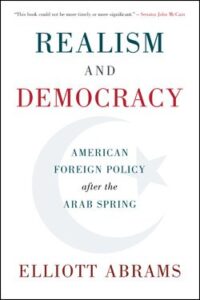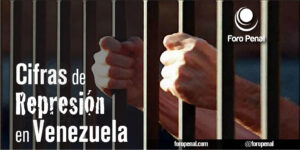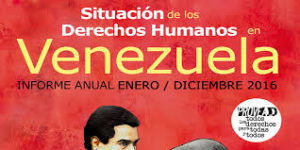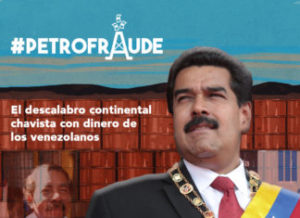Despite being branded a “communist” by his critics, Chile’s left-wing president-elect Gabriel Boric has always pointed to Europe not Venezuela as the inspiration for the “social welfare” state he wants to create. Boric was the centrist option in the Approve Dignity’s primary, beating out the Communist Party’s Daniel Jadue, AFP reports.
“Boric is more left than the traditional parties” that have been in government, said Rodrigo Espinoza, a political scientist with the University Diego Portales. But based on his policy agenda, Boric is more “related to European social democracy” than the left in Venezuela or Bolivia, he added.
“Boric is not a communist,” economist Francisco Castaneda of Chile’s Universidad Mayor told AFP. “His political grouping is learning to understand that fiscal responsibility is important, and that reforms to close social gaps must be gradual, long-term,” he added.
 ‘No one wants to be Venezuela’
‘No one wants to be Venezuela’
The main members of the leftist ALBA alliance – Venezuela, Cuba and Nicaragua – are no longer united with Moscow by ideological positions, but by animosity towards Washington, notes Confidencial‘s Mauricio Sáenz in a review of Authoritarian Advances in Latin America.
As the political scientist Andrés Malamud, professor at the University of Lisbon, told CONNECTAS, in Latin America, “democracy is menaced from two flanks: the populist utopia and the technocratic dystopia. The populist utopia has little traction: although they praise Chavez, no one wants to be Venezuela. And the technocratic dystopia is difficult to implement: to be China you must have its technological development and its social discipline.”
 Efforts to advance a democratic transition in Venezuela failed for several reasons, according to Council on Foreign Relations expert Elliott Abrams, author of Realism and Democracy and a National Endowment for Democracy (NED) board member. The answers could shed light not only on Venezuela but on conditions and policies elsewhere, he writes:
Efforts to advance a democratic transition in Venezuela failed for several reasons, according to Council on Foreign Relations expert Elliott Abrams, author of Realism and Democracy and a National Endowment for Democracy (NED) board member. The answers could shed light not only on Venezuela but on conditions and policies elsewhere, he writes:
- Outside support can allow even a weak or unpopular regime to survive. The United States achieved considerable success in bolstering efforts to end military rule in Latin America in the 1980s, but those regimes had very little outside support. The Maduro regime has received intelligence assistance from Cuba, Russia, China, and Iran, diplomatic support from other autocracies as well as from some Western Hemisphere democracies, and has gotten massive loans from Russia and China. So the regime does not feel isolated and the impact of both international criticism and economic sanctions is weakened.
- Broad economic sanctions that do not directly affect the ruling elites will not change their conduct. The United States imposed broad sanctions on Venezuelan exports but Venezuela’s rulers were still able to move freely throughout Latin America and Europe—and move their money freely as well. In many cases their families lived abroad in splendor on the ill-gotten gains. Sanctions must directly hit the civilian and military officials who run the regime to have maximum impact.
 The population at large must see clearly how it will benefit from political change. The Venezuelan opposition was never able to show citizens that removing the regime would lead to greater prosperity for the country. Polls showed that voters blamed the regime far more than U.S. sanctions for the country’s economic collapse, but that did not mean they believed the opposition could bring better days. Here the United States and other supportive democracies failed. The U.S. State and Treasury Departments had detailed economic plans that would have given cash to every Venezuelan family and jump-started the economy. The plans were never publicized — a missed opportunity to reinforce the regime’s culpability for the country’s extreme poverty.
The population at large must see clearly how it will benefit from political change. The Venezuelan opposition was never able to show citizens that removing the regime would lead to greater prosperity for the country. Polls showed that voters blamed the regime far more than U.S. sanctions for the country’s economic collapse, but that did not mean they believed the opposition could bring better days. Here the United States and other supportive democracies failed. The U.S. State and Treasury Departments had detailed economic plans that would have given cash to every Venezuelan family and jump-started the economy. The plans were never publicized — a missed opportunity to reinforce the regime’s culpability for the country’s extreme poverty.- Regime leaders must see a way out in which they can survive, or they will reject change. Regime leaders must feel pain now, through economic sanctions and travel bans, but must see some way to survive after regime change. If they feel that change means long prison terms and penury, they will fight to the death to resist. In Venezuela, neither the United States nor the opposition spoke convincingly enough about amnesties or forms of transitional justice that would allow regime officials to envision a future for themselves in post-Maduro Venezuela. …. Read the rest.
 The Venezuelan regime has long sought to narrow the country’s civic space, but the last year has marked a significant shift towards making repression official policy, notes Katie Burns, Freedom House Program Officer for Latin America and the Caribbean.
The Venezuelan regime has long sought to narrow the country’s civic space, but the last year has marked a significant shift towards making repression official policy, notes Katie Burns, Freedom House Program Officer for Latin America and the Caribbean.
Like other governments in the Americas, the Maduro regime used the COVID-19 pandemic as an excuse to expand social control. Excessive lockdown rules allowed state authorities to harass NGOs and imprison journalists and healthcare workers, as lawmakers took steps to further codify repression, she writes. The March and May 2021 bills introduced in the pro-Maduro National Assembly create new, arbitrary requirements for NGOs to operate and grant the state broad leeway to criminalize any dissenting individual or organization, all under the guise of upholding the law.

Connectas
Fattened by ill-gotten gains from drug trafficking and gold smuggling, the authoritarian regime in Caracas is highly unlikely to engage in serious political negotiations with the opposition without external pressure. The only realistic option is for the US and the EU to negotiate a political solution for Venezuela. Not with the regime but with its backers: Russia, China, Iran and Turkey, The Financial Times contends. This would be challenging, given broader tensions in the world. But it would recognise the reality that Venezuela has ceased to be a Latin American regional issue and now forms part of a broader global calculus.
Illuminating survey from @confidencial_ni details Authoritarian Advances in Latin America https://t.co/nV6xzlvIRX
— Democracy Digest (@demdigest) December 22, 2021
With the Interim Government and the Unitary Platform at yet another crossroads ahead of January 5, 2022, the path ahead for democratic forces in Venezuela appears more uncertain than ever, the Atlantic Council’s Adrienne Arsht Latin America Center adds. How can Venezuela’s opposition overcome internal fissures to regain the path toward democratic restoration? What will be the role of the United States and Europe in providing sustained support for democratic forces in Venezuela post-January 5? How can the international community support new strategies for a return to the Mexico City negotiations and beyond?
Join a public, virtual discussion (above) on Wednesday, January 5th from 9:00 – 10:15 am ET.
Speakers: Evelyn Pinto, Director, National Youth Acción Democratica; Roberto Patiño, Co-founder, Caracas MiConvive, Fellow, Millennial Leadership Program, Atlantic Council; Fabiana Santamaria, Member, Legislative Council, Mérida State, Venezuela. Moderators: Diego Area, Deputy Director, Strategic Development, Adrienne Arsht Latin America Center Atlantic Council; Domingo Sadurní, Assistant Director, Adrienne Arsht Latin America Center Atlantic Council. REGISTER HERE.







